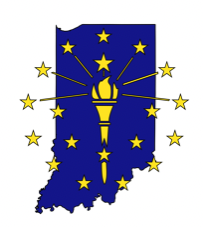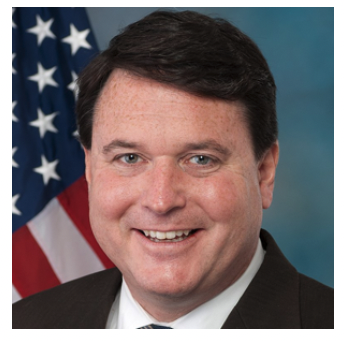
Indiana Attorney General Todd Rokita cautioned local officials in several Indiana cities and counties that he will pursue legal action against them after July 1 if they refuse to follow laws aimed at apprehending illegal immigrants.
Attorney General Rokita’s office sent a blunt message to officials in East Chicago, Gary, West Lafayette and Monroe County: Confirm you have rescinded local policies that enable illegal immigration — or face swift legal consequences starting July 1.
“The flood of illegal immigrants entering the United States is a problem that harms all of us,” Attorney General Rokita said. “The ones paying the price for this lawlessness are Hoosier taxpayers, who must bear increased costs for health care, education and other services used by illegal immigrants.”
The Indiana General Assembly passed a law this year authorizing the attorney general to file lawsuits against any Indiana colleges, universities or units of local government not enforcing current Indiana laws banning sanctuary cities.
A "sanctuary city" is a term for a local unit of government that has adopted a policy to deliberately and intentionally disregard federal law and not cooperate with federal immigration authorities.
Town hall attendees and some state representatives have decried these “immigrant welcome centers” popping up around the state, expressing worries that crime and illegal, cheap labor will displace current residents in places like Johnson and Jackson counties.
“We welcome want-to-be-patriots to the United States who will add value to our country and want to live their lives under the values this country was founded upon,” Attorney General Rokita said. “The first way they can show that is by following our laws. Those who do not follow our laws by entering our country legally should not be allowed to stay.”
Attorney General Rokita has sent letters to officials in the cities of East Chicago, Gary, West Lafayette and Monroe County — warning them of impending action if they do not repeal current policies violating Indiana law.

The Indiana Department of Child Services (DCS) has received national recognition for its Indiana Family Preservation Services program, which provides in-home support to strengthen families and improve outcomes while reducing the number of children entering the foster care system.
The program, which launched in June 2020, has been designated a promising practice by the California Evidence-Based Clearinghouse for Child Welfare. The program also was highlighted as an example of how new approaches to child welfare practice can enhance child and family well-being in an April report by the Christensen Institute. On Wednesday, David Reed, MSW, LCSW, CSAYC, deputy director for child welfare services at DCS, spoke about the program’s positive impact before the U.S. Senate Committee on Finance.
The Indiana Family Preservation Services program is designed to keep children in their home when it is safe to do so. It achieves this goal by helping families understand and implement best practices for parental resilience, child development and social connectedness. The program also can provide other support, such as financial assistance, when not doing so would result in children having to enter foster care. Most importantly, all services are coordinated by a single provider, easing the administrative burden on families by working with a single point of contact.
“Entering foster care and being separated from family is traumatic for children,” Reed said. “When we can provide the support that allows children to remain safely at home, we see vastly improved outcomes and healthier relationships over the long term.”
Reed noted that the program has resulted in children being safer, with fewer children experiencing repeated maltreatment than before its launch.
Additionally, since the federal Family First Prevention Services Act passed in 2018, DCS has:
- Reduced the number of children in traditional out-of-home foster care by 50 percent
- Reduced the number of children in residential facilities by more than 50 percent
The Indiana Family Preservation Services program has played a critical role in those outcomes.
Since its inception, Indiana Family Preservation Services has served more than 27,000 children and 14,000 families.
By Becky Killian
Staff Writer
The City of Salem’s dispatch department will merge into the county’s 911 effective June 1. The merger got a unanimous vote of support from the Washington County Board of Commissioners during the Tuesday, May 21, meeting.
Prior to the vote, Commissioner Todd Ewen said, “I’m tickled to death this has finally come about.” He commended Mayor Justin Green and Sheriff Brent Miller for their negotiations that resulted in the merger.
The agreement is expected to save administrative and overhead costs for both the city and county. The city will provide two dispatchers’ salaries annually in an amount not to exceed $65,000.
The merger found unanimous support from the Salem Common Council during its Monday, May 13, meeting.
The change will not result in any loss of jobs, Green said. The city’s current dispatchers will have the option of transferring to the county.
Green said both the city and county departments struggle to find adequate staffing: it is hoped the merger will alleviate that problem.
“This proposal makes sense in a lot of ways,” Green said, adding that a combined city-county dispatch is not unique to Salem and Washington County.
The interlocal agreement that details the merger offers both parties the opportunity to opt out with a 90-day notification. The agreement has a term of five years.

Indiana Attorney General Todd Rokita is dispensing more than $8.8 million to Indiana cities, towns and counties in the next round of opioid settlement funds distributed under his leadership.
Attorney General Rokita and his team secured these settlements from companies that allegedly contributed to the state’s opioid epidemic through irresponsible and/or unlawful actions.
“Hoosiers have seen far too many of our loved ones suffer and even die from opioid addiction and overdose,” Attorney General Rokita said. “Misconduct by drug companies helped start this epidemic in the first place, and it has played a large role in perpetuating the crisis. We can’t bring back lost lives, but we can hold these companies accountable and enable communities to use settlement funds on prevention, treatment and enforcement programs.”
In total, Attorney General Rokita has reached settlements worth more than $925 million with companies involved in some aspects of making, selling, distributing or advertising opioids.
This round of distributions includes a one-time payment representing communities’ share of a settlement with Publicis Health to resolve investigations into the global marketing and communications firm’s role in the prescription opioid crisis. Publicis helped Purdue Pharma and other opioid manufacturers market and sell opioids.
In addition, this round of payments includes settlement funds from two distributors — AmerisourceBergen (now known as Cencora) and Cardinal Health. Additional distribution payments are expected in the fall of 2024 from AmerisourceBergen (now known as Cencora), Cardinal Health, McKesson, Teva, Janssen, CVS, and Allergan.
Besides the tragic personal toll on families, the opioid crisis has imposed significant costs on Indiana’s health care, child welfare, and criminal justice systems.
Local governments have discretion in choosing exactly how to use the opioid funds. Guidelines can be found on Attorney General Rokita’s website.
The settlement framework continues to be a 50-50 split between the state and local governments. A listing of the payments estimated for each community for the full 18 years can be found on the Office of Attorney General website.

Following months of campus protests sometimes featuring troubling anti-Jewish propaganda, Attorney General Todd Rokita warned college officials they are duty-bound to enforce Title VI of the Civil Rights Act of 1964 by combating all forms of antisemitism on their campuses — or risk losing their federal funding.
"My team and I are deeply committed to ending antisemitism in all forms,” Attorney General Rokita wrote in a letter to college officials. “Some Indiana colleges and universities boast large populations of Jewish students. If these students face antisemitism on campus without corrective measures, they may bring an action under Title VI against your university by alleging a hostile environment or retaliation.”
Violent and disruptive protests have rocked campuses coast to coast following last year’s deadly attack on Israel by the terrorist group Hamas. Although the 2023-24 academic year is wrapping up, the potential persists for continued campus protests — and continued antisemitic agitation.
Title VI of the Civil Rights Act of 1964 prohibits discrimination based on “race, color, and national origin” in programs and activities that receive federal financial assistance. Indiana state-run higher educational institutions receive federal funding and are therefore subject to Title VI.
Attorney General Rokita also reminded college officials they must ensure that student groups do not materially support foreign terrorist organizations. House Enrolled Act 1179, which takes effect July 1, 2024, requires state educational institutions to adopt policies to prohibit providing funds or other resources to foreign terrorist organizations or state sponsors of terror.
Those who would incite violence or commit criminal acts may not hide behind the First Amendment to avoid culpability, Attorney General Rokita added.
“Protecting our Jewish students requires accountability on the university’s part. I strongly encourage them to enforce university codes of conduct and the law when necessary to put an end to antisemitism and the promotion of terrorism on your campuses,” Attorney General Rokita said. “That way we can ensure that all students, including our Jewish brothers and sisters, are safe and have an equal access to education.”
SalemLeader.com
Leader Publishing Company of Salem, Inc.
P.O. Box 506
117-119 East Walnut Street
Salem, Indiana. 47167
Phone: 812-883-3281 | Fax: 812-883-4446
Business Hours:
Mondays through Fridays, 9:00am - 5:00pm
News:
news@salemleader.com
Office:
office@salemleader.com
Publisher:
publisher@salemleader.com
Business
- More Business News
- Go To Guide
- Business Directory
- Auctions
Education
- More Education News
Opinion
- Editorials
- Letters to the Editor
- Columns
- Unsung Heroes
- Days Gone By
- In the Garden
- Guest Columns
- Reader's Poll
- Salem Leader Forum
- Questions and Answers
Church
- Bible Aerobics
- Church News
- Church Directory

